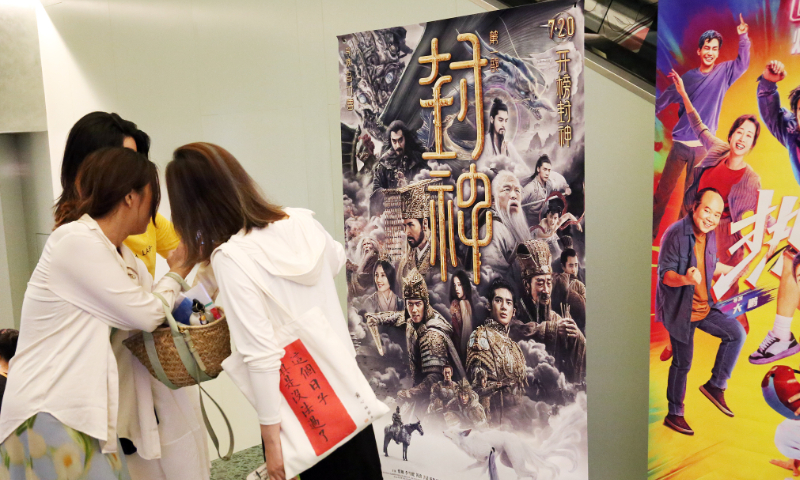Netizens call for calm amid controversy over ethnicity in new film

Chinese netizens have urged against using ethnicity to fuel division and conflict, following controversy sparked by crew members of a mythological epic film who labeled Mulan, a heroine who disguised herself as a man to fight in her father's place, as Mongolian. The film director's comments about the origins of the Han ethnicity have also stirred debate.
An actress in the film, Na Ran, who plays the role of a fox spirit, was found to have liked and retweeted a post in 2017 which claimed Mulan was a Mongol fighting for territories occupied since the Han Dynasty (206BC-AD220).
Mulan is a household name in China, and the woman was believed to have lived during the Northern Wei Dynasty (386-534), which was ruled by Xianbei people who transformed from a nomadic to an agricultural civilization.
The post cannot be found in the account of Na Ran, who is of Russian and Mongolian ethnicity. But the screenshot of her repost offended many Chinese who see Mulan as their heroine and who dismissed the narrative of "Han Dynasty occupation."
Some urged Na Ran to apologize and rectify her erroneous historical view, but other said that instead of having ulterior motives, she may just lack knowledge. Na Ran could barely speak Chinese in 2017 and information she could access could have been very biased.
Another controversy was about the director's preference in the film's casting.
When asked why the film has a lot of actors and actresses of ethnic minorities, the director Wu Ershan, who is of Mongol ethnicity, said the term of Hanzu, or Han ethnicity, started in the Yuan Dynasty (1279-1368) which was ruled by Mongol people. Before that, people referred to each other by the place in which they lived.
Such remarks immediately triggered anger among some net users who argued that Han people originated in the Han Dynasty some 2,000 years ago and accused the director of disparaging the concept of Han ethnicity and advocating historical nihilism.
But others interpreted the director's remarks as an attempt to explain that in ancient China, Han was not yet an ethnicity, so using ethnic minorities in casting does not apply to such a story which is set in ancient times.
The film Creation of the Gods was inspired by history of the Shang (c.1600BC-1046BC) and Zhou (1046BC-771BC) dynasties, and is intertwined with folklore, legends and mythical creatures.
"If actors of Han ethnicity can play Mongols in many historical TV dramas, why can't it be the reverse as well?" said a Weibo user.
"The question itself is strange, as casting should be to choose the ideal person for a role and the ethnicity of an actor or actress should not be an issue," wrote a Weibo user.
There have been debates about the origins of Han ethnic group and the concept of ethnicity in the contemporary sense, but introducing such debates into an entertainment product and continuously hyping the casting is more like "stirring up trouble," one history student told the Global Times on condition of anonymity.
As the film itself is popular and has generated lots of online discussion, and given that ethnicity is a sensitive public topic, it is possible that some netizens are hyping the recent controversy just to generate comments, reposts and attention, which can ultimately transform into economic benefits.